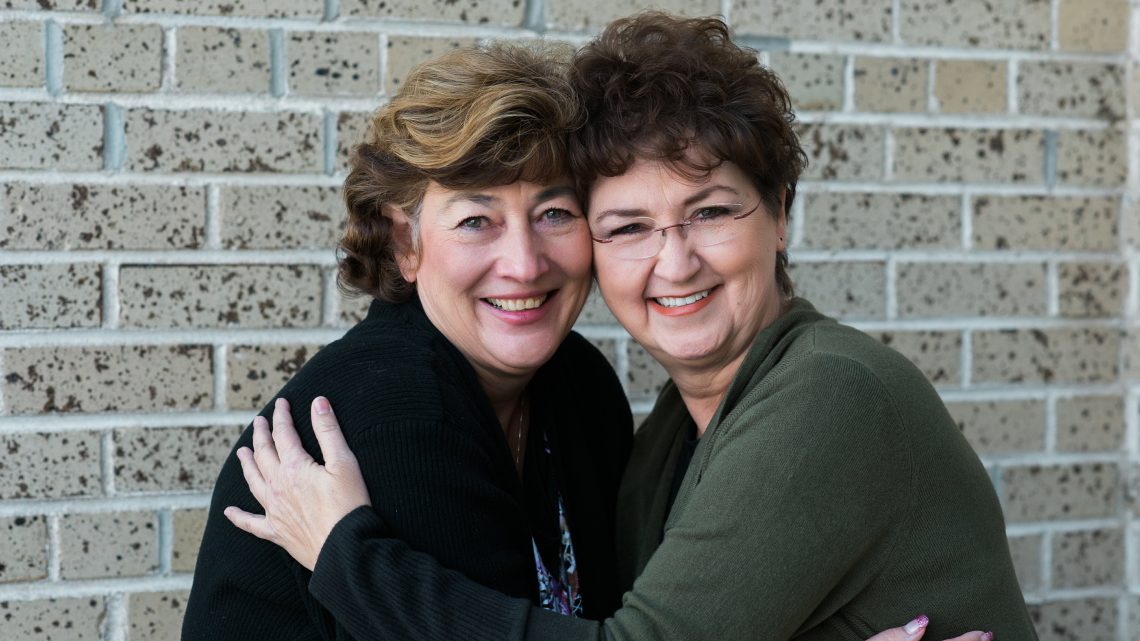Rita Martin has plenty of reasons today to trust in the sufficiency of Christ’s grace. She also had many reasons in the past to be angry, bitter and unforgiving. As a child she was abused by a family member who was also a spiritual leader, and no one protected her. Even worse, she was continually forced to spend time with her abuser during family gatherings, which created a great distrust of authority and religious figures.
Like many victims of childhood abuse, Rita grew up and married into a physically and emotionally abusive situation with an unfaithful husband. When the marriage finally ended after 13 years, Rita found herself without much support—not even from her closest friend, Jackie.
In fact, Jackie actually sided with Rita’s husband during the divorce, causing Rita to feel extremely hurt and resentful. Throughout high school and for many years afterward the two friends had been inseparable. But the grudge Rita held in her heart soon led to dissolution of the friendship and they no longer communicated.
Sparks of hope
In July 2016, after attending a Hope of Survivors seminar at campmeeting, Rita was able to share her story of childhood abuse. She gained an understanding of the difference between forgiving and forgetting—that one can forgive, but still remember and still set healthy boundaries to protect oneself. She also learned that forgiveness does not always mean there will, or even should, be reconciliation. How grateful Rita was to “come out of the dark,” as she stated, and “no longer stand in shame!”
When Rita’s testimony was shared online, her extended family members learned the truth about what she had endured. Wondering how they could not have seen the abuse at the time, they rallied around her.
While the support of family helped immensely, Rita still struggled to forgive Jackie for what she felt was a deep betrayal. A few months later, the two former best friends attended the same church function. As they saw one another, Rita said, “I love you and I want nothing between us.”
Jackie responded in similar fashion and forgave Rita for her coldness over the years. They did not spend time re-hashing old wounds, but extended mutual forgiveness and shared a deep desire to come together again as friends. “Relationships are more important than whatever divides us!” Rita declared.
God makes it possible
When asked how she was able to forgive her friend, as well as her family members and the man who abused her, Rita was quick to point out that we only hurt ourselves when we hold on to unforgiveness. Indeed, one can tell by Rita’s pleasant demeanor and joy-filled attitude that she has chosen to let bitterness and unforgiveness go, and to allow the Peacemaker to fill her heart with His love, joy and peace.
“Making peace with people came from me being able to completely let go of the pain and anger,” said Rita. “I had to keep reminding myself that, ‘but for the grace of God, there go I.’” Rita was diligent about striving to see things from other people’s perspectives, which helped her let go and move forward in life, instead of allowing the baggage of the past to hold her captive.
Since she recognizes that no one is perfect and everyone makes mistakes, she sees forgiveness as extending the same grace to others that Christ has extended to her. Matt. 6:12, 14-15 (KJV) gives us the instruction that Rita has chosen to follow: And forgive us our debts, as we forgive our debtors. …For if ye forgive men their trespasses, your heavenly Father will also forgive you: But if ye forgive not men their trespasses, neither will your Father forgive your trespasses.
“It is a privilege and a duty to extend grace to those around us,” Rita adds. “Forgiving feels like being let out of prison and restored.”
—Samantha Nelson is CEO of The Hope of Survivors, a ministry for victims of clergy sexual abuse. She and her pastor husband currently serve in the Rocky Mountain Conference.










